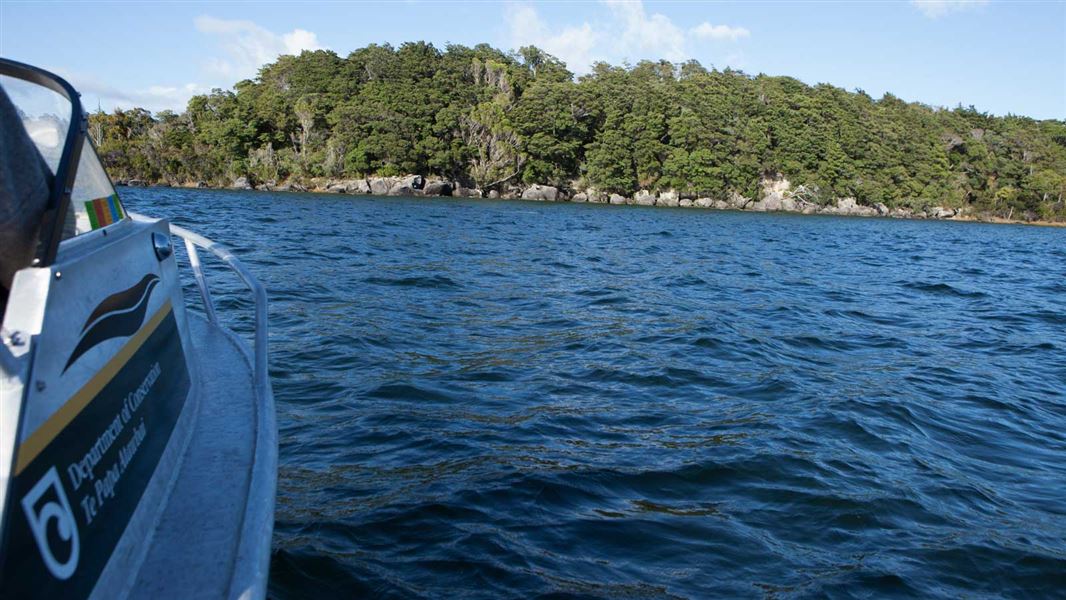How you can help
Call us
If you see any illegal or suspicious activity, contact the 24-hour DOC emergency hotline 0800 DOC HOT (0800 362 468) immediately and report it. All calls and personal details are treated confidentially.
If you're Deaf, hearing impaired, Deafblind or speech impaired you can use the New Zealand Relay Service to call us.
You can help us by providing:
- the location
- vehicle and trailer registration number
- boat name
- description of the person
- photographs if possible.
When witnessing any suspected illegal activity, always put your personal safety first.
Contact the local DOC office
You can also contact your local DOC office to report suspicious activity.
Find DOC office contact details.
Email us
You can also email us.
Email: info@doc.govt.nz
What we'll do
DOC has trained warranted officers located in most of our district offices throughout New Zealand who investigate conservation law offences. We have a range of enforcement tools available, including:
- fines, and
- in serious cases, prosecution.
Examples of illegal activity
Illegal take, damage
- Taking dogs or domestic pets into controlled areas, such as national parks and island nature reserves.
- Using illegal gear or methods for whitebaiting.
- Fishing in marine reserves. All marine life in marine reserves is protected.
- Taking sports fish without a licence, or fishing during a closed season.
- Disturbing marine mammals. Mammals such as seals, dolphins and whales are protected and commercial interaction is strictly regulated.
- Taking, injuring or killing protected species. Most of our native bird species, geckos, lizards, some frogs and invertebrates are absolutely protected.
- Taking dogs into controlled areas, such as national parks.
- Theft of native trees, harvesting protected flora.
- Damaging historic features or sites.
Illegal use
- Running commercial guiding activities with no concession (permission).
- Modifying public conservation lands, eg land development within marginal strips and vegetation clearance.
- Camping in prohibited areas.
- Using drones without authorisation.
